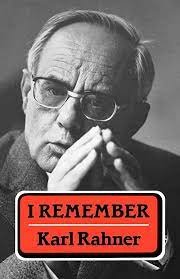 Image 1 of
Image 1 of


I Remember (Rahner, Karl)
Karl Rahner refused to write his memoirs. He used to say that his life had been uneventful, that his bibliography -four thousand items in various languages - was his life. But he did agree in the end to a series of interviews that constitute a lengthy, sustained reflection on his life and thought. In this book he talks about his childhood in Freiburg, his family life and religious background, the terror of life under the Nazis, the war years, and all that came after. There are delightful cameo portraits of Martin Heidegger, Alfred Delp and Cardinal Ottaviani; candid comments about the church and its future, about old age and the approach of death. But what comes through strongest of all is the clear and simple expression of the faith of a spiritual master who has been called 'the mystical doctor' and 'the theologian of everyday life'."
Karl Rahner refused to write his memoirs. He used to say that his life had been uneventful, that his bibliography -four thousand items in various languages - was his life. But he did agree in the end to a series of interviews that constitute a lengthy, sustained reflection on his life and thought. In this book he talks about his childhood in Freiburg, his family life and religious background, the terror of life under the Nazis, the war years, and all that came after. There are delightful cameo portraits of Martin Heidegger, Alfred Delp and Cardinal Ottaviani; candid comments about the church and its future, about old age and the approach of death. But what comes through strongest of all is the clear and simple expression of the faith of a spiritual master who has been called 'the mystical doctor' and 'the theologian of everyday life'."
Karl Rahner refused to write his memoirs. He used to say that his life had been uneventful, that his bibliography -four thousand items in various languages - was his life. But he did agree in the end to a series of interviews that constitute a lengthy, sustained reflection on his life and thought. In this book he talks about his childhood in Freiburg, his family life and religious background, the terror of life under the Nazis, the war years, and all that came after. There are delightful cameo portraits of Martin Heidegger, Alfred Delp and Cardinal Ottaviani; candid comments about the church and its future, about old age and the approach of death. But what comes through strongest of all is the clear and simple expression of the faith of a spiritual master who has been called 'the mystical doctor' and 'the theologian of everyday life'."
